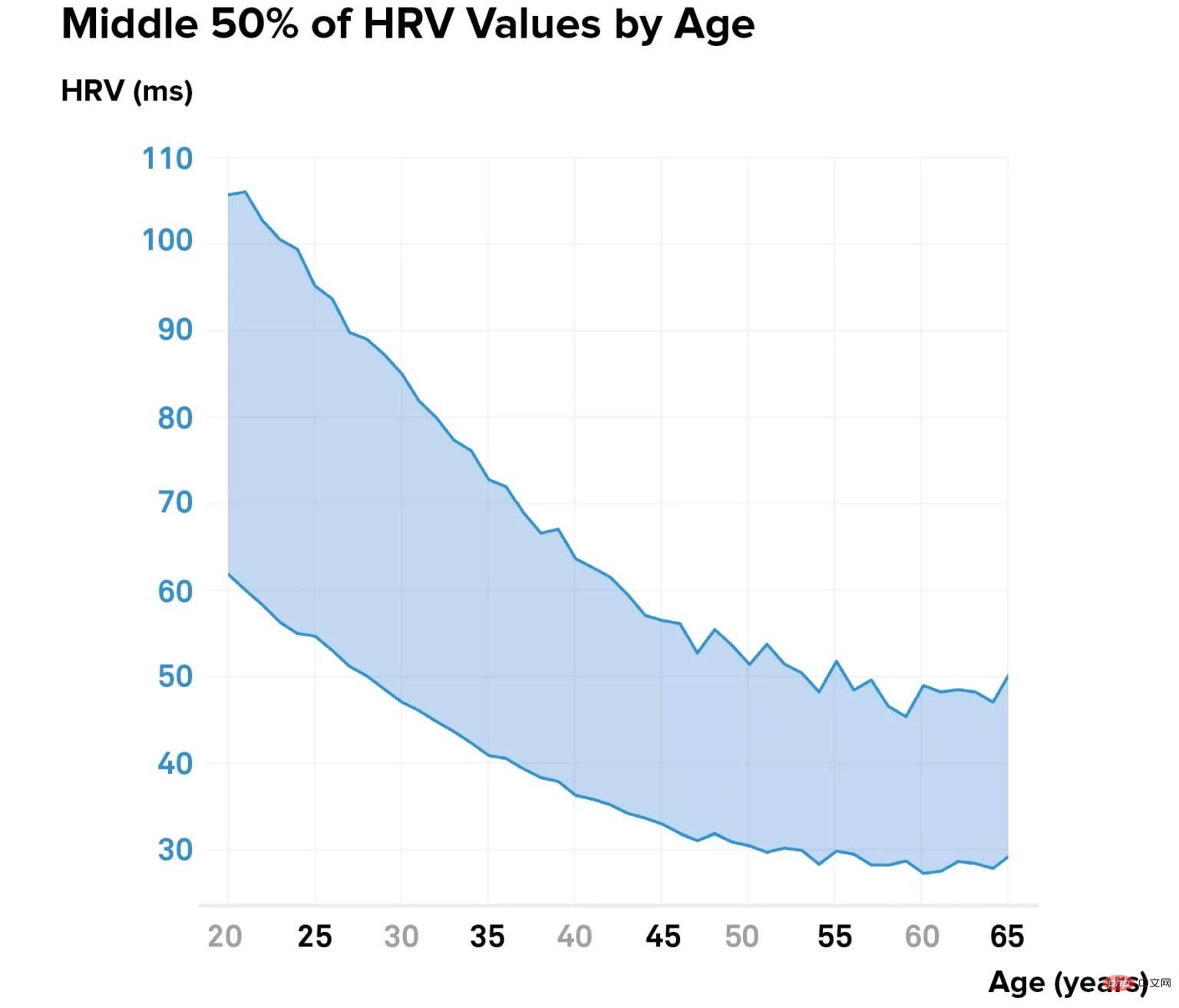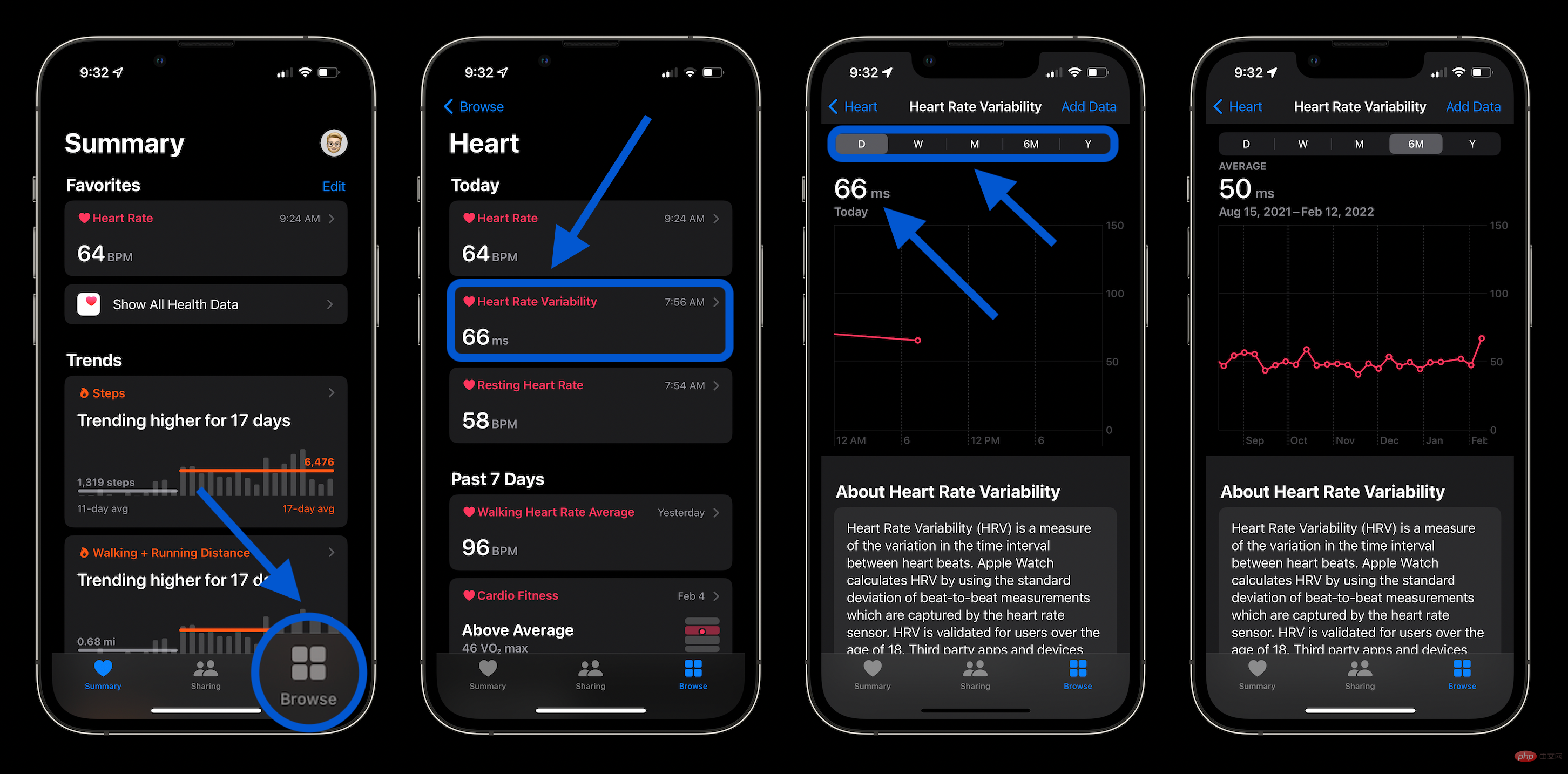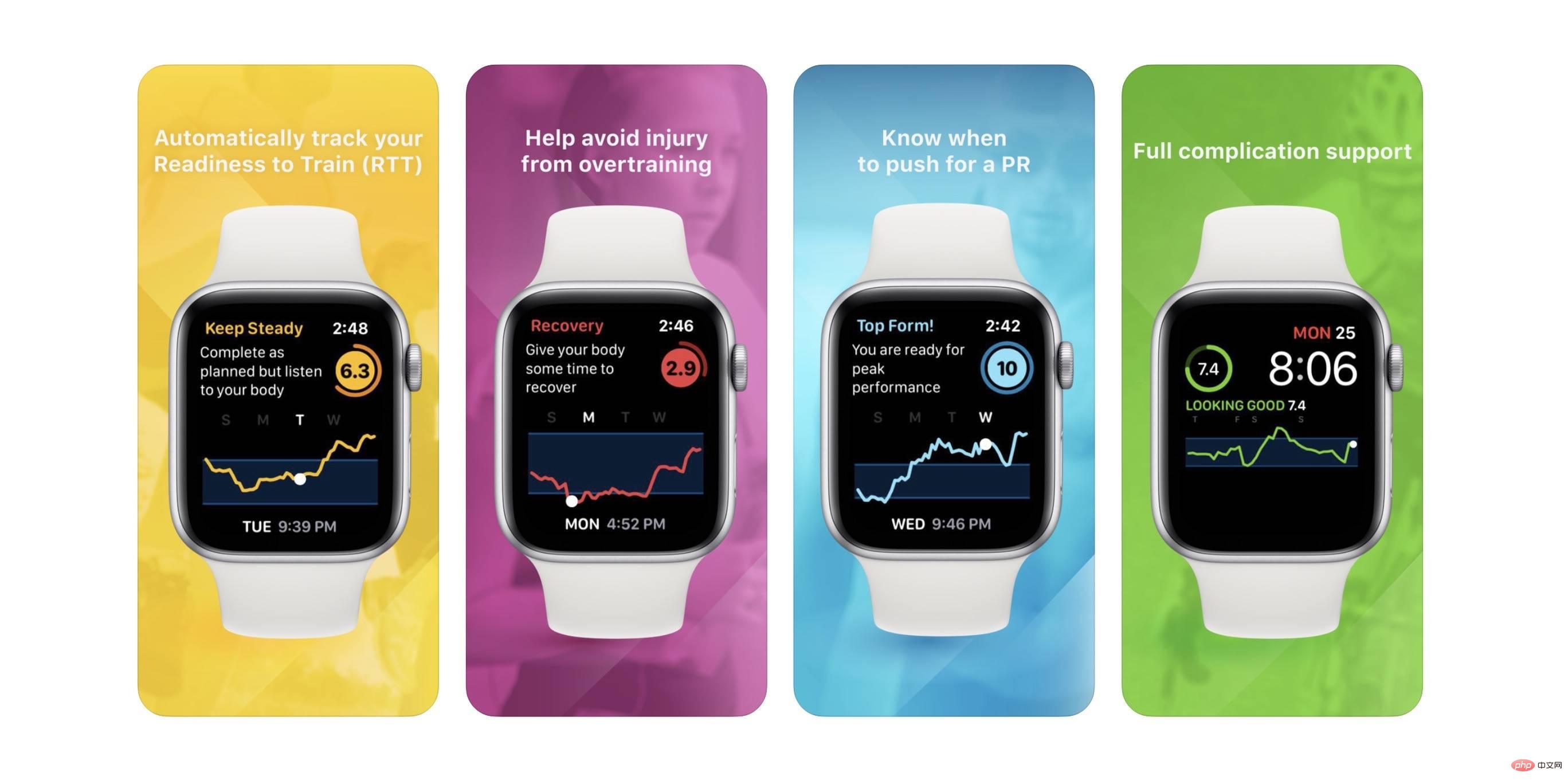Here's why HRV matters and how to track it with Apple Watch and iPhone
What is heart rate variability?
HRV stands for Heart Rate Variability, a measure of how the time between heartbeats changes. You won't notice these tiny differences, but devices like the Apple Watch capture HRV in milliseconds.
Some medical professionals believe that measuring HRV through the skin using a smartwatch is not as accurate as a dedicated medical device. But studies have shown that the Apple Watch is as reliable as products like Polar heart rate monitors in measuring HRV.
Why is HRV important?
While it may sound like a bad thing at first, a higher HRV actually indicates that you're healthier, happier, less stressed, and may mean you're recovered and ready to exercise.
Many health and fitness professionals consider HRV to be one of the best indicators of knowing when your body needs a break or is ready to work, as well as providing insight into the condition of your autonomic nervous system.
Along with HRV, Cardio Fitness (based on VO2 max) is a valuable metric to note as it can indicate and predict overall health.
This is how the Cleveland Clinic describes HRV:
Changes in your heart reflect your body's ability to adapt. If your heart rate varies a lot, this is usually a sign that your body is adapting to a variety of changes. People with high heart rate variability are generally less stressed and happier.
On the other hand, a lower HRV (at rest) may indicate that your body is less adaptable/resilient and may be a sign of a health issue or potential future health issue.
What is a good HRV value?
HRV is a very personal and ever-changing metric. It also depends on a variety of factors including physical and mental health/stress, diet, nutrition, alcohol consumption, sleep habits, age, gender, genetics, exercise frequency/intensity, etc.
HRV can also change a lot throughout the day, so don't track it hour by hour. With this in mind, it's important not to use HRV by comparing it to other people's HRV, but simply to look at trends in your own HRV over time. If you have questions about your HRV numbers, talk to your doctor.
But if you're curious about general HRV numbers, Whoop has revealed the middle 50% HRV values for its users by age:

How to get it on Apple Using HRV on Watch and iPhone
How to find your HRV Apple Watch data
For Apple Watch users 18 and older, Apple Watch automatically records HRV (in most countries/regions) . However, you'll need to go to the Health app on your iPhone to view the data.
- Open the Health app on iPhone
- Click the Browse tab in the lower right corner
- Select now Heart>Heart Rate Variability
- At the top you can change the HRV data view by day, week, month, half year and year

How to use Apple Watch to force HRV recording
If you use Apple Watch to read HRV manually while resting, and read it at the same time every day, you can get more accurate and Potentially more useful data.
- In addition to automatic readings, you can force the Apple Watch to record your HRV by opening the Mindfulness app and selecting " Breathe"
- Shortly, you’ll see new HRV data appear in the Health app on iPhone
Get more value from your HRV data
The sticking point is that the Apple Watch and iOS Health app don't offer any suggestions or insights into your HRV data like Whoop or Oura do.
It’s useful to know that trending HRV is a good indicator of overall health, but what about more actionable insights?
I have used the Training Today app and have been impressed with its recommendations. After you allow it to read your HRV data from the Health app, the app will compare your current HRV to your baseline to make recommendations such as taking time to recover, "hold steady but listen to your body," or "Prepare for peak performance".
Training Today calls this the Readiness to Train (RTT) score, and it has an easy-to-use, color-coded 0-10 scale. I found these tips very helpful in listening to what my body was telling me.

Training Today is free to download from the App Store, with in-app purchases available to unlock all of the app’s features.
The above is the detailed content of Here's why HRV matters and how to track it with Apple Watch and iPhone. For more information, please follow other related articles on the PHP Chinese website!

Hot AI Tools

Undresser.AI Undress
AI-powered app for creating realistic nude photos

AI Clothes Remover
Online AI tool for removing clothes from photos.

Undress AI Tool
Undress images for free

Clothoff.io
AI clothes remover

Video Face Swap
Swap faces in any video effortlessly with our completely free AI face swap tool!

Hot Article

Hot Tools

Notepad++7.3.1
Easy-to-use and free code editor

SublimeText3 Chinese version
Chinese version, very easy to use

Zend Studio 13.0.1
Powerful PHP integrated development environment

Dreamweaver CS6
Visual web development tools

SublimeText3 Mac version
God-level code editing software (SublimeText3)

Hot Topics
 1389
1389
 52
52
 Why can't the Bybit exchange link be directly downloaded and installed?
Feb 21, 2025 pm 10:57 PM
Why can't the Bybit exchange link be directly downloaded and installed?
Feb 21, 2025 pm 10:57 PM
Why can’t the Bybit exchange link be directly downloaded and installed? Bybit is a cryptocurrency exchange that provides trading services to users. The exchange's mobile apps cannot be downloaded directly through AppStore or GooglePlay for the following reasons: 1. App Store policy restricts Apple and Google from having strict requirements on the types of applications allowed in the app store. Cryptocurrency exchange applications often do not meet these requirements because they involve financial services and require specific regulations and security standards. 2. Laws and regulations Compliance In many countries, activities related to cryptocurrency transactions are regulated or restricted. To comply with these regulations, Bybit Application can only be used through official websites or other authorized channels
 Anbi app official download v2.96.2 latest version installation Anbi official Android version
Mar 04, 2025 pm 01:06 PM
Anbi app official download v2.96.2 latest version installation Anbi official Android version
Mar 04, 2025 pm 01:06 PM
Binance App official installation steps: Android needs to visit the official website to find the download link, choose the Android version to download and install; iOS search for "Binance" on the App Store. All should pay attention to the agreement through official channels.
 Sesame Open Door Trading Platform Download Mobile Version Gateio Trading Platform Download Address
Feb 28, 2025 am 10:51 AM
Sesame Open Door Trading Platform Download Mobile Version Gateio Trading Platform Download Address
Feb 28, 2025 am 10:51 AM
It is crucial to choose a formal channel to download the app and ensure the safety of your account.
 How to solve the problem of 'Undefined array key 'sign'' error when calling Alipay EasySDK using PHP?
Mar 31, 2025 pm 11:51 PM
How to solve the problem of 'Undefined array key 'sign'' error when calling Alipay EasySDK using PHP?
Mar 31, 2025 pm 11:51 PM
Problem Description When calling Alipay EasySDK using PHP, after filling in the parameters according to the official code, an error message was reported during operation: "Undefined...
 Download link of Ouyi iOS version installation package
Feb 21, 2025 pm 07:42 PM
Download link of Ouyi iOS version installation package
Feb 21, 2025 pm 07:42 PM
Ouyi is a world-leading cryptocurrency exchange with its official iOS app that provides users with a convenient and secure digital asset management experience. Users can download the Ouyi iOS version installation package for free through the download link provided in this article, and enjoy the following main functions: Convenient trading platform: Users can easily buy and sell hundreds of cryptocurrencies on the Ouyi iOS app, including Bitcoin and Ethereum. and Dogecoin. Safe and reliable storage: Ouyi adopts advanced security technology to provide users with safe and reliable digital asset storage. 2FA, biometric authentication and other security measures ensure that user assets are not infringed. Real-time market data: Ouyi iOS app provides real-time market data and charts, allowing users to grasp encryption at any time
 Sesame Open Door Exchange App Official Download Sesame Open Door Exchange Official Download
Mar 04, 2025 pm 11:54 PM
Sesame Open Door Exchange App Official Download Sesame Open Door Exchange Official Download
Mar 04, 2025 pm 11:54 PM
The official download steps of the Sesame Open Exchange app cover the Android and iOS system download process, as well as common problems solutions, helping you download safely and quickly and enable convenient transactions of cryptocurrencies.
 gate.io sesame door download Chinese tutorial
Feb 28, 2025 am 10:54 AM
gate.io sesame door download Chinese tutorial
Feb 28, 2025 am 10:54 AM
This article will guide you in detail how to access the official website of Gate.io, switch Chinese language, register or log in to your account, as well as optional mobile app download and use procedures, helping you easily get started with the Gate.io exchange. For more tutorials on using Gate.io in Chinese, please continue reading.
 Is there any mobile app that can convert XML into PDF?
Apr 02, 2025 pm 08:54 PM
Is there any mobile app that can convert XML into PDF?
Apr 02, 2025 pm 08:54 PM
An application that converts XML directly to PDF cannot be found because they are two fundamentally different formats. XML is used to store data, while PDF is used to display documents. To complete the transformation, you can use programming languages and libraries such as Python and ReportLab to parse XML data and generate PDF documents.



